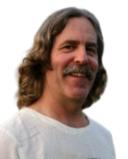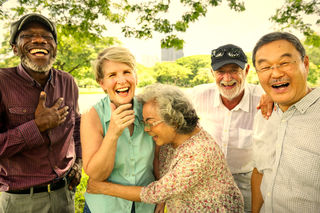
Our approach to aging needs updating.
We are living longer, but need guidance for living better. The good news is there are plenty of ways to age well. They are largely holistic, as opposed to medical, and more importantly, they are life-affirming as opposed to debilitating.

Start with the obvious. As individuals and as a society, we are growing older. What if we took that phrase, however, and reoriented it, so it reads we are growing older? Aren’t the longer lifetimes we experience an opportunity to deepen our lives?
It will be a timely reorientation. 48 million Americans are over 65, by 2050 there will be 90 million Americans over 65, all facing decades of living with no defined role from society.
This is a terrible waste of time and wisdom. On average now, we experience an entire second adult lifetime, compared to our forebears born in 1900. The question then, individually and collectively, is how people make the most of this treasured new span of time?
That quandary is a basis for the conscious aging movement, “harvesting” our wisdom, in the phrase of Zalman Schacter-Shalomi, a pioneer in conscious aging. “By harvesting, I mean gathering the fruits of a lifetime’s experience and enjoying them in old age,” he writes in his influential 1995 book From Aging to Sage-ing.
Yet, enjoying one’s own old age is only a beginning. A personal approach to aging well ideally will synergize with changes society can make for empowering its coming legions of elders. Millions more of us will live well past retirement age, in health and leisure unlike any previous generation, a far-reaching opportunity for cultivating wisdom and contributing to society.
That’s not to say it is easy being older. Bette Davis pithy observation “Old age ain’t no place for sissies,” is true as ever. Aging is full of challenges. But across an array of human disciplines we have learned conclusively that, contrary to widespread belief, our body and mind are good at growing older in a manageable and even advantageous fashion. In effect, the older human body-mind system needs more warm-up time and runs a bit slower, but can learn new tricks, indeed, should continue to learn new tricks to the end, and thus garner new insights of body and mind.
Turns out there are a great many ways to age well. The basic approach is simple, stay active. Various methods range from tai chi to travel, from eating right to sleeping enough, from exploring literature to learning new languages, but they add up to staying active.
Gerontologists reference “life space”, the distance a person travels from their bed each week. Greater life space correlates to a longer healthier life. So as a rule of thumb, use the Wellness Triangle of physical, intellectual and social activity as a personal framework for wellness.
The Wellness Triangle also serves as a framework for collectively aging well. We can, and given the demographics, should invest in a system promoting aging well. Clearly, we are not yet doing so, wasting untold money and lives.
As dramatic as that sounds, one example highlights the possibility and the reality. The deadliest peril for seniors is falling. It is the leading cause of death and non-fatal injury among seniors, an older American dies from a fall every 19 minutes.
To counter this, the federal Center for Disease Control recommends seniors practice tai chi, to strengthen muscles. improve balance and prevent falls. Guess how much funding goes to supporting that recommendation?
Tai chi is an example of “evidence-based programming,” which is what officials call health and wellness programming proven effective enough to qualify for federal funds. Despite its proven effectiveness, there is no funding listed specifically to increase the practice of tai chi in the U.S. Meanwhile, Medicare spends $40 billion annually treating falling, as seniors die from falls.
Investing a fraction of those billions on teaching tai chi nationally would reap untold return in ways far more important even than financial savings. Seniors could avoid sufferings of falls and also reap far-reaching benefits attending a class providing exercise and stimulation. Tai chi classes not only prevent tragedy but foment well being.
Programs producing more tai chi practitioners and fewer fallen can serve as an exemplar of upgrading our approach to proactively deal with aging. But while society reorients its approach, each person may act knowing their future is malleable.
In an encouraging note for all of us, remember elder humans are generally happier humans. Seniors self-identify as happy in higher percentages then younger folk do, a consistent finding sometimes called the Paradox of Aging. Data show correlation to happiness rising with age, so in some surveys, folks in their nineties report the most happiness.
I believe there is there is no aging paradox at all. We now know are equipped to age well and actively learn wisdom, resiliency, and compassion along the way. We are developing new ways of experiencing aging. One could say the future for elders is bright.
Aging Sagely says come back every week and let’s learn about aging together.



